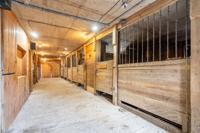Real eState
Here's what first-time homebuyers need to know about the Sask. real estate market – CTV News Regina
With housing inventory levels at an all time low and prices on the rise, prospective first-time homebuyers in Saskatchewan are feeling the effects of an uncertain market.
For the past six months, Sydney Morin, a 23-year-old nursing student who is heading to school this September, and her partner have been looking to buy their first home, to no avail.
“It’s a weird in-between time right now,” said Morin.
Morin currently works part time and rents a duplex in the Cathedral area in Regina.
“It kind of just dwindled down slowly,” Morin explained. “We weren’t really seeing anything that we liked and kind of got disheartened with the whole process.”
“It’s just kind of at a standstill right now.”
Morin is hopeful market conditions will improve, but industry experts are warning some of the current challenges are likely to continue.
THE CURRENT CLIMATE
One issue buyers across Canada are currently dealing with is the rising cost of homes. Over the past two years, the benchmark price for a typical residential property in Regina rose by 14 per cent.
The benchmark price for a Regina home in May of 2020 was $287,800. As of May 2022, that figure now sits at $328,200.


Chris Guerette, the CEO of the Saskatchewan Realtors Association (SRA), is one of the many leaders in the industry warning that the immediate future is looking difficult for those entering the house hunt.
“What we’re seeing is a market that is quite busy here in Saskatchewan. We’re seeing in our recent numbers that sales have dipped,” Guerette explained.
“That’s really the reality of some headwinds that we’re all experiencing across the country in terms of inflationary pressures and interest rates that are rising. But what’s important to note is our inventory levels are still also dropping, so it’s not providing much relief.”
Peter Fourlas, a realtor and associate broker who has worked in the Regina area for the past 14 years, has his own theory on the market’s current state.
“I think with a decrease in the interest rates, the last few years, a lot of those buyers came out of the woodwork to purchase,” said Fourlas. “So it’s keeping our inventory levels at an all time low. Specifically from 2016 to 2020, when we had a severe overage of inventory.”
Records from the SRA seem to support Fourla’s theory. Annual house sales for the Regina area in 2016 totaled 2,828 with a remaining inventory of 1,215 homes at the end of the year.
Fast forward to 2021, sales increased to 3,731 – more than 900 higher than at the start of the overage in 2016 and 700 higher than the year previous.
Sales in 2021 were record breaking in the 10 years of available data. The remaining inventory in Regina at the end of year numbered 1,252 homes.
Regina’s population rose from 215,105 in 2016 to 249,217 in 2021 according to Statistics Canada.
Demand and population have largely increased while inventory has only done so marginally.
Besides inflation, a shortage of housing is the prevalent issue that the Saskatchewan Housing Continuum Network (SHCN) is currently preparing for.
Immigration and natural growth in the province is expected to add 220,000 residents by 2030, increasing Saskatchewan’s population to 1.4 million, according to the Saskatchewan Growth Plan.
The SCHN estimates that the province will have to build anywhere from 95,000 to 141,000 housing units to accommodate this projected growth.
However, only 98,000 units have been built in Saskatchewan since 1990.


“We know that if we want to meet those growth goals… we have to squish that same amount of units into a much shorter period, roughly eight years,” Guerette explained.
This comes as Canada as a whole is experiencing a housing deficit of approximately 1.8 million units according to Guerette.
Ontario’s housing gap is currently listed at 650,000 units. Alberta’s is estimated at 138,000.
Saskatchewan is not alone in this issue, and while there is not a detailed plan in place at this time, Guerette believes the goals are still very much in reach.
“We think it’s still very possible to go there,” she said. “But we need to start having those conversations now.”
SO HOW DO YOU BUY A HOUSE?
Skott Enns describes himself as a ‘matchmaker.’
Enns has worked as a licensed mortgage broker since 2012, and acts as an intermediary between his clients and the various lenders he works with.
One of the main issues Enns sees is credit history, or lack there of, with prospective first-time buyers.
“The reality is that when someone’s coming in and they want to borrow $300,000 or $400,000, a lot of what the lenders base their decision on is the credit history that the client has,” said Enns.
“If that client has zero credit history, it’s going to be an uphill battle to get them the mortgage.”
Poor decisions with credit cards and bills are another prevalent issue that Enns sees frequently.
“A lot of this is not taught in high school, and a lot of people’s parents don’t educate kids on this either. You know, people were stupid with credit,” he explained.
“They chose not to make the credit card payments, they chose to wait and not pay the phone bill, and it went to collections. So I mean, that can also be an uphill battle as well.”
Another important aspect of the home buying process is the down payment.


“I will say my average mortgage amount is in and around $300,000. So I mean, at least from my numbers, first time homebuyers need to be able to save up a minimum of five per cent. So you’re going to want to have $15,000 to $20,000 saved up.”
The process of both finding and buying a home can be explained as a multi step outline:
- Initial meeting with mortgage broker: Discuss options and start the process on mortgage pre-approval.
- Fill out pre-approval application (employment, down payment plan, etc.).
- Broker sends other documentation that your bank (the lender) will need.
- All paperwork has been filed (including a credit check): broker issues an official pre-approval letter.
- Time to go house hunting: broker may refer a realtor, home insurance specialist, and lawyer.
- You’ve found a house: the realtor sends your broker the purchase contract.
- Update paperwork (if needed): decision on whether to choose fixed or variable rate mortgage.
- Submit paperwork to your lender: response should come within 3 – 5 business days.
- All conditions satisfied (down payment, employment, credit etc.): paperwork is sent to lawyer of your choice.
- Lawyer will call a week before possession: remind you to sort out property taxes and fire insurance. The lawyer will need a bank draft of the down payment.
- A couple days before possession, the lawyer will need some final signatures on the remaining paperwork.
- Day of possession: either the realtor or lawyer will give you the keys to your new home.
FIXED OR VARIABLE?
An important concept in the financing of a home is whether to use a fixed or variable interest rate mortgage.
Enns is a believer in variable rate mortgages due to their flexibility, a reason he attributes to around 80 per cent of his clients utilizing variable interest rates.
“As of right now, in many cases, there’s about a two per cent gap between fixed and variable,” he explained.
“If five year fixed is in the low four per cent, five year variables are really in the low two per cent.”
The advantage of a variable interest loan is that the buyer can utilize declining interest rates, because as rates fall, their loan payments decrease as well.
On the other side of the coin, buyers will also be paying more as interest rates rise.
“Within this last year, they’ve increased quite significantly,” said Enns. “Now, for the most part, everything’s going to be about four per cent.”
The advantage of lower interest rates may be taken away with the current climate, but as Enns sees it, flexibility still reigns supreme.
“If you are breaking your variable rate mortgage, for whatever reason, the penalty for getting out is only a three month interest penalty, which is the smallest penalty that you’ll ever pay when you’re breaking the mortgage,” he said.
As the name suggests, fixed interest rate loans do not have a changing interest rate. The buyer is guaranteed the same payment no matter where the market shifts. This security comes at a cost however, as there are typically large fees attached if the buyer wants to get out of the loan.
“Anytime you hear horror stories of people that have their bank charging them $15,000 or $20,000 to get out of their mortgage; those are all fixed rate mortgage penalties,” said Enns.
A SHIFTING PROBLEM
Regina’s ever shifting soil, wreaks havoc on many parts of the city, compromising foundations, causing structure problems and adding roadblocks to a market that is already difficult to enter.
Morin witnessed the effects of the “Regina gumbo” first hand during her month’s long home search.
“Generally, a lot of them had structural issues,” she said of the houses she viewed.
“The issue with ours was, we purchase a home for $240,000, $10,000 under our pre approval rate, and to fix the foundation is $50,000 or even more than that. We don’t really have that money obviously to fix it upfront, or we can’t add more than $40,000 worth of renovations into our mortgage.”
“You’re just kind of stuck with it unless you have that money. So, it’s just kind of finding one that isn’t horrible.”
Fourlas’ restated that there needs to be a lot of caution around structural issues in Regina’s housing market.
“My job is always to ensure that they’re making a good decision for now, but as well as that five years down the road, 10 years down the road,” he said about his interactions with clients. “That’s why it’s really important to worry about the structure of the home, first and foremost, over the aesthetics.”
“Because the aesthetics are changeable. The structure is the staple of that home.”
THE FUTURE
Even with market pressures, uncertainty, and lack of supply, the outlook of those in the real estate industry is positive for the long term.
A main component of this cautious optimism is the fact that Saskatchewan now has the most affordable housing in Canada, recently beating out New Brunswick for the title.
“We’re still a province that, compared to our neighbors, is still relatively affordable,” said Guerette. “So when we take a look at what those options are, we want to make sure that we have a housing continuum that has a lot of choice.”
The benchmark price of a residential home in Regina as of May 2022 is $328,200. That figure has been rising since the start of the year, but it, along with interest rates, are bound to normalize.
“We will see interest rates decreasing again in a couple of years. Likely, once the Bank of Canada realizes that maybe they increased rates a little bit too aggressively,” said Enns.
Even with increases in prices, Enns believes that the situation is manageable even for those entering the market for the first time.
“I don’t want it to be seen like I’m saying this is the end of the world scenario, because I don’t believe it is,” he said. “It’s just sort of is what it is.”
Looking to the future, Morin has cautious optimism that she and her partner will be able to move into a starter home. Maybe not in the coming months, but perhaps in the coming years.
“I don’t know if it will get worse. I hope it doesn’t. But I could see it happening,” she said. “I sort of have that attitude just based off of it being six months and we’re still looking and still kind of holding out.”
“But I think one day, I will be able to own a home.”
Real eState
Waterdown home listed for $2M offers 'rural-style living' – Hamilton Spectator
/* OOVVUU Targeting */
const path = ‘/business/real-estate’;
const siteName = ‘thespec.com’;
let domain = ‘thestar.com’;
if (siteName === ‘thestar.com’)
domain = ‘thestar.com’;
else if (siteName === ‘niagarafallsreview.ca’)
domain = ‘niagara_falls_review’;
else if (siteName === ‘stcatharinesstandard.ca’)
domain = ‘st_catharines_standard’;
else if (siteName === ‘thepeterboroughexaminer.com’)
domain = ‘the_peterborough_examiner’;
else if (siteName === ‘therecord.com’)
domain = ‘the_record’;
else if (siteName === ‘thespec.com’)
domain = ‘the_spec’;
else if (siteName === ‘wellandtribune.ca’)
domain = ‘welland_tribune’;
else if (siteName === ‘bramptonguardian.com’)
domain = ‘brampton_guardian’;
else if (siteName === ‘caledonenterprise.com’)
domain = ‘caledon_enterprise’;
else if (siteName === ‘cambridgetimes.ca’)
domain = ‘cambridge_times’;
else if (siteName === ‘durhamregion.com’)
domain = ‘durham_region’;
else if (siteName === ‘guelphmercury.com’)
domain = ‘guelph_mercury’;
else if (siteName === ‘insidehalton.com’)
domain = ‘inside_halton’;
else if (siteName === ‘insideottawavalley.com’)
domain = ‘inside_ottawa_valley’;
else if (siteName === ‘mississauga.com’)
domain = ‘mississauga’;
else if (siteName === ‘muskokaregion.com’)
domain = ‘muskoka_region’;
else if (siteName === ‘newhamburgindependent.ca’)
domain = ‘new_hamburg_independent’;
else if (siteName === ‘niagarathisweek.com’)
domain = ‘niagara_this_week’;
else if (siteName === ‘northbaynipissing.com’)
domain = ‘north_bay_nipissing’;
else if (siteName === ‘northumberlandnews.com’)
domain = ‘northumberland_news’;
else if (siteName === ‘orangeville.com’)
domain = ‘orangeville’;
else if (siteName === ‘ourwindsor.ca’)
domain = ‘our_windsor’;
else if (siteName === ‘parrysound.com’)
domain = ‘parrysound’;
else if (siteName === ‘simcoe.com’)
domain = ‘simcoe’;
else if (siteName === ‘theifp.ca’)
domain = ‘the_ifp’;
else if (siteName === ‘waterloochronicle.ca’)
domain = ‘waterloo_chronicle’;
else if (siteName === ‘yorkregion.com’)
domain = ‘york_region’;
let sectionTag = ”;
try
if (domain === ‘thestar.com’ && path.indexOf(‘wires/’) = 0)
sectionTag = ‘/business’;
else if (path.indexOf(‘/autos’) >= 0)
sectionTag = ‘/autos’;
else if (path.indexOf(‘/entertainment’) >= 0)
sectionTag = ‘/entertainment’;
else if (path.indexOf(‘/life’) >= 0)
sectionTag = ‘/life’;
else if (path.indexOf(‘/news’) >= 0)
sectionTag = ‘/news’;
else if (path.indexOf(‘/politics’) >= 0)
sectionTag = ‘/politics’;
else if (path.indexOf(‘/sports’) >= 0)
sectionTag = ‘/sports’;
else if (path.indexOf(‘/opinion’) >= 0)
sectionTag = ‘/opinion’;
} catch (ex)
const descriptionUrl = ‘window.location.href’;
const vid = ‘mediainfo.reference_id’;
const cmsId = ‘2665777’;
let url = `https://pubads.g.doubleclick.net/gampad/ads?iu=/58580620/$domain/video/oovvuu$sectionTag&description_url=$descriptionUrl&vid=$vid&cmsid=$cmsId&tfcd=0&npa=0&sz=640×480&ad_rule=0&gdfp_req=1&output=vast&unviewed_position_start=1&env=vp&impl=s&correlator=`;
url = url.split(‘ ‘).join(”);
window.oovvuuReplacementAdServerURL = url;
#HamOntHouseHunt is a regular feature looking at houses for sale in the Hamilton area market. Have a tip? Email us at fhewitt@torstar.ca.
Price $1,999,900

The fully functional barn located on the property of 694 Centre Rd. in Waterdown.

The kitchen of 694 Centre Rd. in Waterdown.

The primary bedroom of 694 Centre Rd. in Waterdown.

The back deck of 694 Centre Rd. in Waterdown.
Real eState
Former HGTV star slapped with $10 million fine and jail time for real estate fraud – Fortune


Back when mortgage rates and home prices were more reasonable and manageable, homeowners invested in fixer-upper properties and made them their own. Now these types of projects aren’t as popular. But in the early-to-mid-2010s, HGTV shows including Fixer Upper, Love It or List It, and Flip It to Win It were all the rage as viewers binge-watched dilapidated homes transform into dream properties.
But as it turns out, one former HGTV star’s house-flipping show was masking major real estate fraud. On Tuesday, Charles “Todd” Hill, was sentenced to four years in jail and ordered to pay back nearly $10 million to his victims following his conviction. Los Gatos, Calif.–based Hill, 58, was the star of HGTV show Flip It to Win It, which aired in 2013 and featured Hill and his team purchasing dilapidated homes and fixing them up. Hill then sold them for a profit.
“Some see the huge amount of money in Silicon Valley real estate as a business opportunity,” Santa Clara County District Attorney Jeff Rosen said in a statement. “Others, unfortunately, see it as a criminal opportunity—and we will hold those people strictly accountable.”
What did Hill do?
According to the indictment shared with Fortune, the accusations against Hill happened between 2012 and 2014, around the time his show (which lasted just one season) began. The indictment shows 10 counts of grand theft of personal property exceeding $950,000; three counts of embezzlement; and one count of diversion of construction funds. Hill could not be reached by Fortune to comment on the indictment, conviction, or sentencing.
Hill was convicted last year of the multiple fraud schemes, including scams that happened before his show aired. This included a Ponzi scheme with evidence showing that Hill had spent laundered money on a rented apartment in San Francisco, hotels, vacations, and luxury cars, according to a press release from the Santa Clara County District Attorney’s Office. HGTV did not respond to requests for comment from Fortune ahead of publication.
“To hide the theft, he created false balance sheets and got loans using fraudulent information,” according to the district attorney’s office. In another case, Hill diverted construction money for personal use. But one of the strangest accounts came from an investor who had poured $250,000 into a property he wanted Hill to remodel.
Instead, during a tour of the home, the investor “found it to be a burnt-down shell with no work done on it.”
After the district attorney’s investigation, Hill was indicted in November 2019 and in September 2023 admitted his guilt and was convicted by plea of grand theft against all of his victims. He’ll have to pay restitution of more than $9.4 million and serve 10 years on probation.
Victims who spoke at Tuesday’s hearing said they’re still reeling from the financial and professional damages from the fraud, according to the district attorney’s office.
Real eState
Botched home sale costs Winnipeg man his right to sell real estate in Manitoba – CBC.ca


A Winnipeg man’s registration as a real estate salesman has been cancelled after a family vacated their home on a tight deadline for a sale that never went through, then changed brokerages and, months later, got $60,000 less for their house than what they expected when they moved out.
A Manitoba Securities Commission panel found Reginald Wayne Kehler engaged in professional misconduct and conduct unbecoming a registrant when he signed a document on behalf of sellers without their knowledge, reduced the listing price of a home without their approval, and didn’t tell them for nearly a month that a potential buyer hadn’t paid a promised $100,000 deposit.
The sellers, identified as D.R. and P.R. in the panel decision released Wednesday, were awarded $10,394 from the real estate reimbursement fund. Kehler was ordered to pay $12,075 to cover costs of the investigation and hearing.
The sellers were a military family who had to move in 2020 after the husband was posted to Ottawa.
They chose Kehler as their listing agent, because he had helped them find the home when they moved to Winnipeg in 2018, and they had a good relationship with him, the panel’s decision says.
They listed their house in May and on June 15, 2020, accepted an offer of $570,000 with possession on July 15. A deposit of $100,000 was to be paid within 72 hours of acceptance of the offer.
Kehler was the salesperson for both the buyer and the sellers — but the sellers say he never told them that.
A form that indicated the sellers knew he was also representing the buyer, dated June 15, 2020, was filed.
While it appeared to be signed with the sellers’ names, they said they didn’t see it until March 2021. One of the two wasn’t even in Winnipeg on June 15.
“Kehler, in his interview with commission staff, acknowledges that the sellers never signed this document — we note that the purported signatures on the form look nothing like the actual signatures of the sellers on other documents,” the decision says.
Kehler told commission staff he’d been authorized to sign on the sellers’ behalf, which they denied. The panel found them more believable.
Once the deal was made, the sellers, believing they had just a month before the buyer would take possession of their home, quickly packed up and prepared to move with their two young children.
Buyer never made deposit
Meanwhile, the buyer hadn’t made the $100,000 deposit before the deadline — but Kehler didn’t tell the sellers.
Kehler told commission staff that was because he thought the deposit was still coming, and he didn’t want to cause more stress for the sellers.
On July 10, just five days before the buyer was to take possession and the day before the family was leaving Winnipeg, the sellers spoke to Kehler — but he still didn’t tell them the deposit hadn’t been paid.
Kehler “said everything was fine,” according to the decision.
It wasn’t until the evening of July 13, when the family arrived in Toronto on their way to Ottawa and just 36 hours before the scheduled closing, that Kehler told them he’d never received the deposit.
Eventually, they received $4,000 of the deposit, but the sale of the house never closed. The sellers scrambled to extend the insurance on their old home and make sure they continued to pay the utility bills, the decision says.
Home relisted
Kehler then recommended they relist the home, and it went back on the market at $574,900.
On Aug. 10, 2020, Kehler recommended the price be reduced to $569,900. Instead, the seller said he should reduce the price to $567,900.
But when the seller looked at the online listing on Aug. 22, it was listed at $564,900.
The sellers also asked Kehler about maintaining the property, since they were no longer in Winnipeg. He agreed he would, but friends ended up going and mowing the lawn, the decision says.
The sellers asked Kehler and his brokerage about what could be done to “make things right,” the decision says, but they never received any responses.
On Sept. 5, they hired a new brokerage to sell the home. Under the new real estate salesman, they accepted an offer on Dec. 13, and closed the deal Jan. 2, 2021, receiving $507,500 for the home.
Kehler’s actions were “contrary to the best interests of the public” and undermined “public confidence in the real estate industry,” the decision says.
-
Media23 hours ago
DJT Stock Rises. Trump Media CEO Alleges Potential Market Manipulation. – Barron's
-
Investment23 hours ago
Private equity gears up for potential National Football League investments – Financial Times
-
Real eState15 hours ago
Botched home sale costs Winnipeg man his right to sell real estate in Manitoba – CBC.ca
-
News22 hours ago
Canada Child Benefit payment on Friday | CTV News – CTV News Toronto
-
Business24 hours ago
Gas prices see 'largest single-day jump since early 2022': En-Pro International – Yahoo Canada Finance
-
Business15 hours ago
Dow Jones Rises But S&P, Nasdaq Fall; Nvidia, SMCI Flash Sell Signals As Bitcoin's Fourth Halving Arrives – Investor's Business Daily
-
Media24 hours ago
Three drones downed after explosions heard in Iran’s Isfahan: State media – Al Jazeera English
-



 Science20 hours ago
Science20 hours agoMarine plankton could act as alert in mass extinction event: UVic researcher – Langley Advance Times









